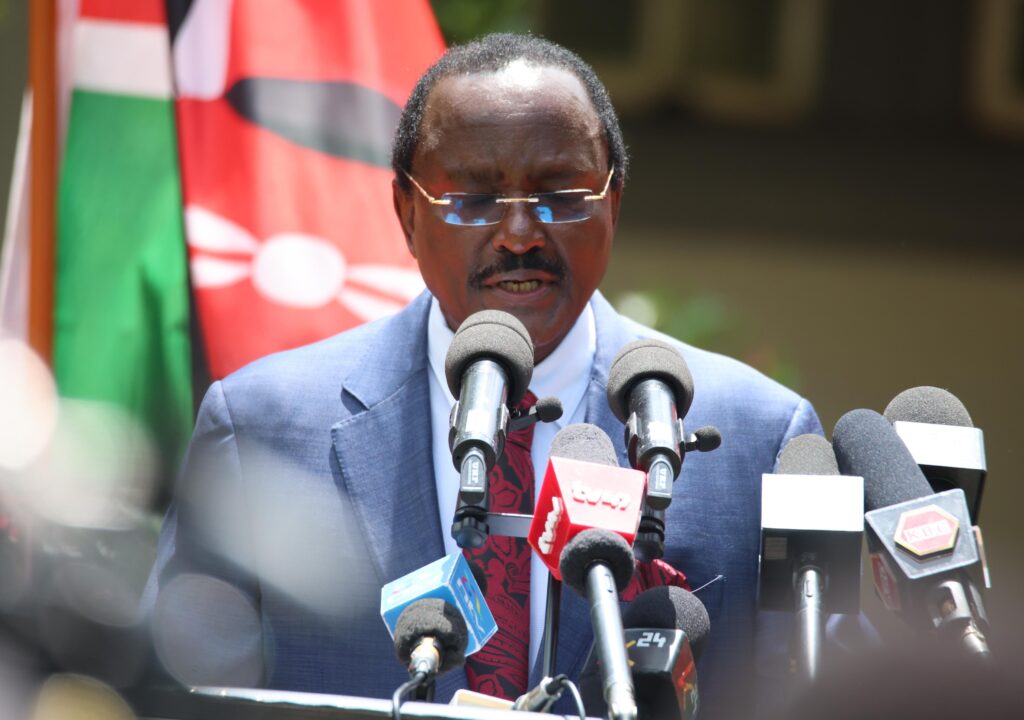
As the festive season begins, Kenyans find themselves caught between the traditions of celebration and the harsh realities of their daily struggles. In an impassioned address issued from the SKM Command Centre in Nairobi on December 9, 2024, former Vice President Stephen Kalonzo Musyoka spoke to the soul of the nation, urging reflection on the state of the country while calling for renewed hope and decisive action.
Traditionally, Jamhuri Day marks the start of a joyous season, blending into the Christmas and New Year festivities. However, Musyoka struck a sobering note this year, acknowledging the profound challenges many Kenyans face. “It has been a very difficult season,” he said, pointing to unemployment, heavy taxation, confusion in education, a crumbling healthcare system, and a government he accused of being unresponsive and oppressive.
This year, Jamhuri Day coincides with other significant observances, including the International Anti-Corruption Day and the International Human Rights Day. Musyoka urged Kenyans to reflect deeply on the meaning of these moments, questioning the country’s progress in human rights and its commitment to addressing gender-based violence.
In his speech, Musyoka painted a troubling picture of the past year. From allegations of government-led corruption involving fake fertilizers and seeds to the mishandling of disaster management during devastating floods, he argued that the administration had failed its people. Families were left marooned in floodwaters, he said, while funds earmarked for disaster relief remain unaccounted for. Forced demolitions under the pretext of the “Affordable Housing Project” added to the plight of many, with the project itself shrouded in what he called “blatant opaqueness.”
The former Vice President accused the regime of turning its back on essential sectors like education and healthcare, as teachers, university lecturers, and health workers went on strike over unmet agreements. Meanwhile, confusion and unrest plagued hospitals, universities, and even the airports, which Musyoka attributed to poor governance and reckless policies.
Musyoka’s outrage was most palpable when addressing the abductions, disappearances, and killings of young Kenyans who protested against the government. He described these incidents as a brutal assault on democracy and human dignity, asking, “What government does this, anywhere in the world, in this 21st Century?”
Despite the grim realities, Musyoka’s speech was also a rallying cry for hope and resistance. He warned those engaged in corruption and impunity that their time was running out. “We are going to talk about corruption, and we are going to fight it, too. No amount of threats or intimidation will stop us from demanding accountability,” he vowed.
Addressing the youth directly, he promised they were not alone in their struggles. “Your welfare is of the greatest import to us. We shall not look on as your future is stolen,” he said, urging them to prepare for what he called the “final liberation.”
Musyoka also criticized Kenya’s actions on the international stage, particularly the controversial deployment of police officers to Haiti, which he described as tarnishing the nation’s reputation. He expressed concern over alleged abductions and deportations of foreign nationals, acts that he said undermined Kenya’s standing in global diplomacy.
In his closing remarks, Musyoka reminded Kenyans that brighter days lie ahead, urging them to reject the government’s attempts to paint a misleading picture of success. “Our day as Kenyans is coming,” he declared, calling for resilience and unity in the face of adversity.
As the country approaches Jamhuri Day, Musyoka’s address stands as a powerful reminder of the need for accountability, justice, and a recommitment to the ideals of independence. His words offer not only a critique of the current state of affairs but also a vision of hope for a Kenya where the dignity and rights of its people are restored.
